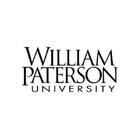- News and articles
- Find usIDP AustraliaIDP BahrainIDP BangladeshIDP CambodiaIDP CanadaIDP ChinaIDP EgyptIDP GhanaIDP Hong KongIDP IndiaIDP IndonesiaIDP IranIDP JordanIDP KenyaIDP KoreaIDP KuwaitIDP LebanonIDP MalaysiaIDP MauritiusIDP Middle EastIDP NepalIDP New ZealandIDP NigeriaIDP OmanIDP PakistanIDP PhilippinesIDP Saudi ArabiaIDP SingaporeIDP Sri LankaIDP Taiwan, ChinaIDP ThailandIDP TurkeyIDP UAEIDP VietnamIDP Corporate
- Social
- English
- Where we operate
- Courses
- Scholarships
- IELTS
- About IDP
- Student Essentials
- News and articles
- Find us
- Find us
- Find nearest IDP offices
- IDP Australia
- IDP Bahrain
- IDP Bangladesh
- IDP Cambodia
- IDP Canada
- IDP China
- IDP Egypt
- IDP Ghana
- IDP Hong Kong
- IDP India
- IDP Indonesia
- IDP Iran
- IDP Jordan
- IDP Kenya
- IDP Korea
- IDP Kuwait
- IDP Lebanon
- IDP Malaysia
- IDP Mauritius
- IDP Middle East
- IDP Nepal
- IDP New Zealand
- IDP Nigeria
- IDP Oman
- IDP Pakistan
- IDP Philippines
- IDP Saudi Arabia
- IDP Singapore
- IDP Sri Lanka
- IDP Taiwan, China
- IDP Thailand
- IDP Turkey
- IDP UAE
- IDP Vietnam
- IDP Corporate
- Social
- Language Switcher
- IDP Education /
- Colleges and Universities /
- United States /
- William Paterson University... /
- Master of Science in Biotec...


Location
United States
Qualification
Masters Degree
Fees
USD25175
(2025)
Duration
3 Semester(s)
Next intake
27 August 2025
Entry Score
6.0
IELTSCourse info
Recognized by the National Professional Science Masters Association, a degree in MS Biotechnology at WPU will:
Distinguish you from graduates of non-PSM programs in an increasingly competitive job market.
Ensure you are ready to contribute immediately after graduation with the technical, problem solving, leadership, and communication skills needed to integrate quickly and succeed in the workplace.
Flexibility around your schedule. The M.S. in Biotechnology is a 30-credit professional science graduate program. Flexibility comes with day, evening and online course options. For those looking to finish the degree quickly, completion in 1.5, or the traditional 2 years is possible. For those with busy work/life schedules, the program can be completed part-time taking one course per semester and /or an online course in summer sessions.
Coursework includes uniquely hands-on technical courses in Genomics & Bioinformatics, Gene Expression, Cell & Tissue Culture, Recombinant DNA Technology, and Protein Biochemistry, and theoretical and traditional laboratory courses in areas such as Structural Biology, Immunology, Neuroscience, Pharmacology, and Bioethics. Required courses in Project Management and Research Methods, and elective options in Business and Professional Communication, provide a breadth of professional development.
Knowledge and skills acquired include technical, scientific, problem-solving and critical thinking, business practices, teamwork, project/team management, quantitative analysis, leadership and strategic thinking, ethics and responsible conduct. Graduates are prepared for success in biopharma, biotechnology, pharmaceutical, healthcare, forensic, cosmetic, food, agriculture, environmental and other science-intensive industries.
- Scholarships
- Internships
Entry requirements for William Paterson University - Eag
Baccalaureate degree, preferably in biology or related major.
Applicant should have had at least one course each in general biology and genetics.
It is recommended that applicants have taken one year of chemistry and math.
Cumulative grade point average of no less than 3.00 on 4.00 scale (GRE not required).
Students applying from countries where English is not the language of instruction should have a satisfactory score on the Test of English as a Foreign Language (TOEFL) or other assessment accepted by the University and provide a recognized translation of their degrees and transcripts
TOEFL
IBT (Internet based test) - 79
CBT (computer-based test) - 213
PBT (paper based test) - 550
IELTS
6.0 overall band
Application Deadline
The application deadline isn't available Speak to an IDP counsellor for more detailed information
Further information
If you aren't eligible for the above entry requirements, you might ant to explore pathway options at William Paterson University - Eag. If you want to find out more, speak to our counsellors.
What our students think
We’ve haven’t received any reviews for this institution yet.
Recommended for you
- Masters Degree
- Fresno , United States
- Next intake:08/2025
- Entry Score: IELTS 6.5
- USD15168 (2025)
- Masters Degree
- Kent , United States
- Next intake:01/2025
- Entry Score: IELTS 6.5
- USD18546 (2025)
- Professional Masters Degree
- San Marcos , United States
- Next intake:08/2025
- Entry Score: IELTS 6.0
- USD17688 (2025)
- Double Major Degree
- Pittsburgh , United States
- Next intake:08/2026
- Entry Score: IELTS 6.5
- USD50970 (2025)
- Masters Degree
- Pittsburgh , United States
- Next intake:08/2026
- Entry Score: IELTS 6.5
- USD25485 (2025)
- Masters Degree
- Birmingham , United States
- Next intake:01/2025
- Entry Score: IELTS 6.0
- USD17100 (2025)
- THE World Ranking:801
- Masters Degree
- Orlando , United States
- Next intake:01/2025
- Entry Score: IELTS 6.5
- USD26200 (2025)
- THE World Ranking:801
- Masters Degree
- Orlando , United States
- Next intake:01/2025
- Entry Score: IELTS 6.5
- USD26200 (2025)
Your action plan
Step 1
Shortlist your courses
Choose the best three courses you’re most likely to pursue.
Step 2
Check your eligibility
Get an instant in-principle offer for courses with the IDP FastLane tag.
Step 3
Apply through IDP Live
Fill out the form once and use it to apply to multiple courses.
How does IDP FastLane work?
With the FastLane 'Offer in Principle', you'll know in minutes if you'll be accepted!
Select an institution and course
Create your academic profile
Submit your application for an 'Offer in Principle'
Your chosen institution(s) will send you a decision in minutes!
Get ready to apply with an expert counsellor




